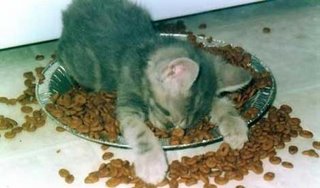Sweet tooth gene

When mutations cause genes to stop functioning, the effect can be caused by damage to the gene, or by damage to the genes that turn on the gene that is no longer expressed.
Take the example of hen's teeth. Although chickens lost the ability to grow teeth 60 to 100 million years ago, the mechanisms for supporting the growth of teeth are still intact, and can be induced to grow teeth by replacing one lost protein, called BMP4, or reintroducing the production of that protein by the neural crest cells.
There are many genes involved in making teeth, and it appears that in birds, interruption of a single pathway is responsible for the loss of teeth. The rest of the mechanisms are still preserved, 60 million years later.
A similar genetic accident may be responsible for cats being carnivorous. Cats, from domestic cats to tigers and cheetahs, seem to have lost one tiny gene that is responsible for the sweet receptor in taste buds. They can't taste sugar. They can't taste the sweetness of plant materials like fruits or sweet sap.
This has importance in designing cat food, but it also gives insight into carnivore evolution and taste.
So, while a hen may still have a sweet tooth, even though it has no teeth, a toothy kitty has no taste for candy.

1 Comments:
Great cat - I love the way cats retain humans as their caring mum!
Post a Comment
Links to this post:
Create a Link
<< Home